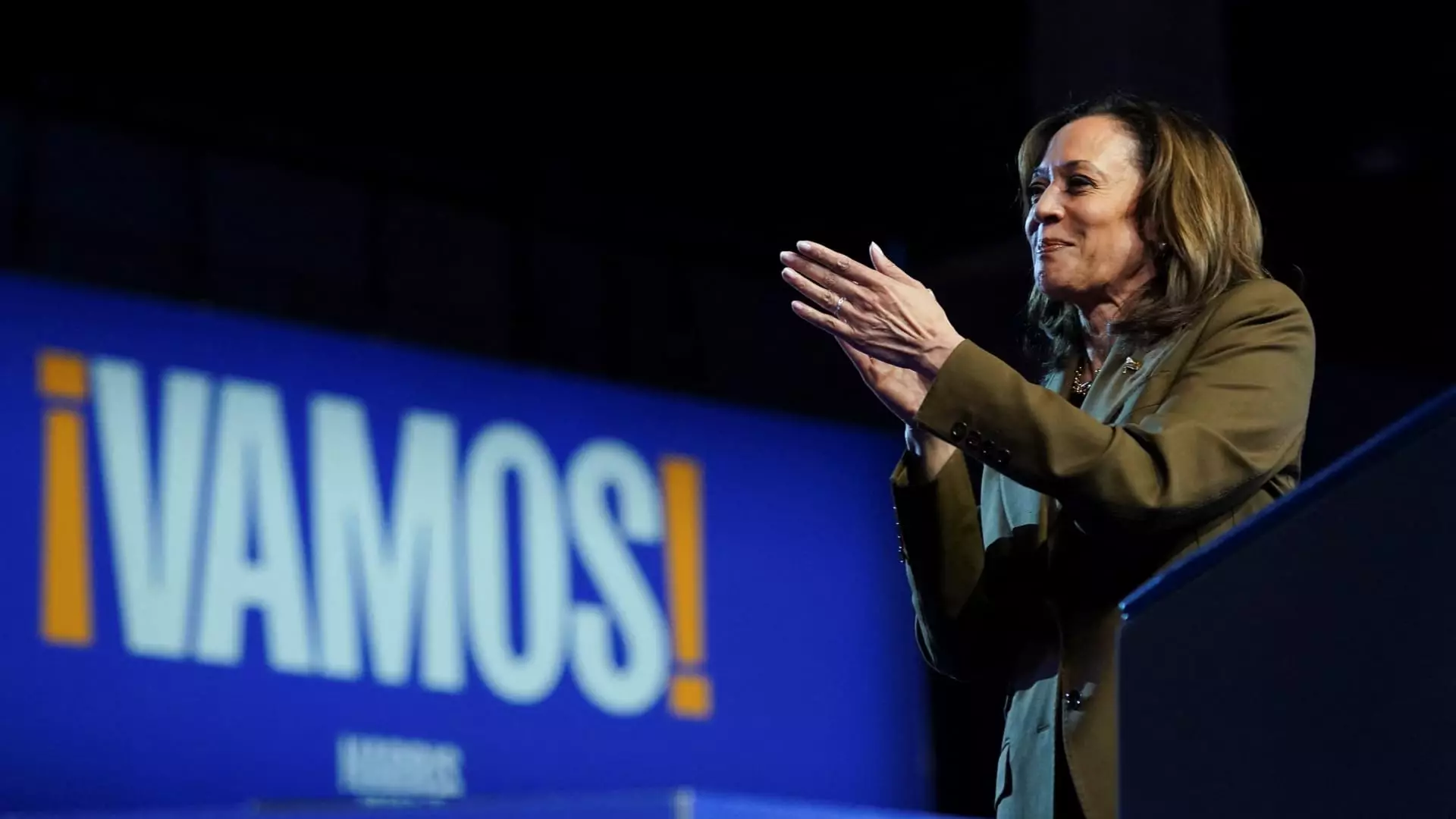The Harris campaign is actively engaging with small businesses across key battleground states, leveraging these interactions to reinforce her candidacy as a champion for grassroots economic development. Their initiative, labeled “Small Business for Harris-Walz,” will see campaign surrogates — comprising elected officials and community advocates — visiting various locations to advocate for Harris’ economic policies. Although Vice President Kamala Harris herself will not be attending these events, the presence of knowledgeable and influential representatives is a poignant strategy aimed at cementing her connection with local enterprises and the communities they serve.
This outreach illustrates a critical understanding of the demographic shifts that have occurred since the last election. In particular, there is a noticeable drop in support among Black and Latino voters, groups that historically leaned Democratic yet seem to be drifting towards Republican narratives. The campaign recognizes that addressing small business owners’ concerns is not only a matter of economic policy but also of rebuilding trust and enhancing party loyalty among these communities.
Former President Trump’s recent rally statements, rallying for support from minority groups, highlight the urgency of Harris’ outreach initiatives. By asserting himself as an ally in economic matters, Trump is strategically positioning his candidacy to appeal to voters who might feel disillusioned or unrepresented. In response, the Harris campaign is bolstering its narrative about the Biden administration’s achievements in supporting minority-owned businesses, emphasizing its mission to reduce racial wealth disparities sparked by past policies and economic turmoil.
Richard Garcia, the Harris campaign’s small business engagement director, articulated a fundamental opposition to Trump’s approach by framing Harris as a defender of the interests of ordinary small business owners. This contrasting approach aims to resonate with voters who value community progress rather than the perceived self-interest of the previous administration. Harris’ campaign is thus attempting to not only draw a stark contrast but also create a relatable connection through her policies, particularly an expanded tax deduction for startups that could relieve financial pressure during challenging economic times.
The upcoming outreach events are designed not merely to inform but to galvanize action within these communities. By organizing volunteer training sessions and house parties, the Harris campaign is fostering grassroots engagement, empowering local supporters to play an active role in her candidacy. This multifaceted approach showcases a strategic blend of direct communication and community organizing, ensuring that the concerns and voices of small businesses are prioritized.
In targeting states like Arizona, Georgia, Michigan, Nevada, North Carolina, and Pennsylvania, the campaign is focusing on regions that are pivotal for electoral success. Each of these states represents a unique mix of economic challenges and opportunities for small businesses, making them ideal for tailored discussions on Harris’ plans to bolster entrepreneurship and foster economic recovery post-pandemic.
Harris is advocating for not just immediate relief but also a broader vision for economic renewal that adheres to both inclusivity and growth. The proposed tax reform aimed at significantly increasing the startup deduction reflects a forward-thinking agenda designed to stimulate small business growth. This policy, among others, is intended to create an environment where entrepreneurial spirit can flourish, helping to close the economic gaps exacerbated by the COVID-19 pandemic.
As the Harris campaign prepares to hit the ground in these battleground states, its ability to galvanize support through small business engagement could prove critical in solidifying a fractured voter base. By digging deeper into the economic concerns of these communities, the campaign hopes to not only mitigate the potential gains of the Republican opposition but also create a lasting connection that could benefit the Democratic Party in the present and future electoral landscapes.


Leave a Reply